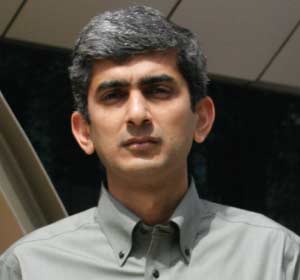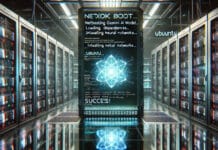 Intel is one of the biggest contributors to open source technology, which also makes the company one of the biggest recruiters of open source professionals. The company has a lot of initiatives involving developers. So anyone with the ‘right’ skill-set can think of working with this technology major. Diksha P Gupta from Open Source For You spoke to Narendra Bhandari, director, Intel Software and Services Group, Intel South Asia, to understand the company’s recruitment strategy with respect to open source developers. Excerpts
Intel is one of the biggest contributors to open source technology, which also makes the company one of the biggest recruiters of open source professionals. The company has a lot of initiatives involving developers. So anyone with the ‘right’ skill-set can think of working with this technology major. Diksha P Gupta from Open Source For You spoke to Narendra Bhandari, director, Intel Software and Services Group, Intel South Asia, to understand the company’s recruitment strategy with respect to open source developers. Excerpts
Q Do you feel India is rich enough in open source skills when compared to the other markets?
Yes. As we see more platforms getting deployed and business models evolving in the software community, one can say that India is definitely offering the right kind of talent. Around 3-5 years ago, software was largely sold on a licence basis. Today things have changed. Software for content or a service is sold to a consumer in many different forms. Open source is definitely one component that has contributed to this process. The consumerisation of applications has also contributed to this changing business model in a pretty significant way. There is a lot of contribution from India from the applications perspective. All these developments lead to the conclusion that the awareness and contributions from the Indian developers’ community are growing. I don’t know how to measure this but I can see a significant change in the way contributions have gone up from the Indian territory. India is certainly rich in open source talent.
Q Is this one of the reasons why Intel is eyeing the Indian market for open source technology?
If you have observed our behaviour, we have almost continuously invested in India over the last five to seven years and worked with companies to build solutions for multiple platforms. We have been working with the developers, because the devices are growing in the market and the availability of broadband is also continuously growing. Our fundamental approach is to drive digital literacy in every home in the country, if possible. That will happen through devices and connectivity, amongst other things. The way Intel wants to address this is by getting more and more relevant applications. That will drive technology usage and digital literacy, and attract more users. Look at it in this way a couple of years back, one could not think of booking air tickets sitting in the remotest parts of the country, but it is possible now. To answer your question about why we continuously work with the developers, my answer would be: to drive digital literacy and that will mostly come through applications. And applications come from developers. If you look at the entire eco-system, our role will be to continuously invest, incentivise and educate developers to build more applications relevant for our lives. So developers play a key role in bringing about digital literacy.
Q Since Intel’s thrust is on open source technology, do you think that there has been a surge in the demand for open source professionals in the past few years, particularly in the Indian market?
As I said, I do not know how to measure this, but all I can say is that the number of platforms is growing and so are the ecosystems attached to those platforms. So, obviously, there is a need for people to participate in the growth process.
Q Are your clients comfortable with open source solutions?
Our direct business comes from customers who pick up processor platforms and develop products around those platforms. These include HP, Dell, Lenovo and many others. They are not consuming our applications. It is their customers, including the enterprises and the SMEs across the country, who are the consumers of our applications. Having said that, I would like to draw your attention to several analysts reports confirming that usage of open source applications is growing. We can safely say that the consumption of open source technology has increased amongst one and all. It may not be very visible but it has definitely gone up in a major way.
Q Do you think FOSS platforms or tools score over their proprietary counterparts in the current scenario, particularly for enterprises and SMEs?
For IT managers, the debate is not about FOSS or proprietary technology. They look for the best solution. I don’t think they start the conversation by saying that I am going to use FOSS so let me figure out what business solution I will focus on. They focus on the best solution. In the current scenario, it is pretty apparent that there are hybrid solutions in the market. I don’t think one drives the other. There’s a lot of good co-operation as far as the deployment in large enterprises is concerned. So, as I said before, I can say that FOSS tools are being preferred and there is a definite under current about FOSS technologies. I cannot give you figures to support that statement but I can surely say that things have moved to the hybrid stage from pure proprietary offerings. That in itself is one of the biggest testimonials of a FOSS victory.
Q Do FOSS platforms add value to project development?
If you look at the FOSS tools being downloaded, one can clearly say that these are increasing with every passing day. If so, it speaks volumes about the fact that people are getting comfortable with open source technologies. Fundamentally, the makers of the platform will also focus on monetising the platforms. I am one person who is more involved with evangelising among developers, so if you ask this question to the practitioners, you will get the exact answer. But if you broaden the question, I can say that developers do benefit from the tools available openly to them. Which is why, they are increasingly using open source technology in project development.
Q What kind of talent do you look for when it comes to hiring for Intel?
I think we look for a complete package when we hire a developer. We look for various aspects including knowledge of software, knowledge of hardware, knowledge of the ecosystem, an understanding of how a particular software can work with a piece of hardware, how the driver interoperates with various other drivers in the system, et al. In today’s scenario, we definitely recommend that developers build their skills, particularly in terms of how the devices are becoming aware of the environment. For example, many of the devices in the market have a slew of sensors. We strongly recommend that developers start looking at them to understand how they interoperate. That is the most pervasive aspect that determines how the mechanism interacts with the ecosystem.
The ideal skills that we want developers to build on are related to power how to deliver performance and not consume excessive power. So if someone is building a solution for an ultrabook, a phone or even a high-performance computing server that will run millions of calculations every second, we encourage developers to start thinking about how to write code efficiently to improve the performance. In some way or the other way, everyone expects their device, PC or ultrabook to be responsive. Developers should know how to make their applications responsive enough so that they impress the ultimate consumers.
Q So do you get that kind of talent in the Indian colleges and universities? Do you see the colleges adapting to such technological changes to ensure their students are employable in companies like Intel?
I can say that over a period of time, the curriculum has improved broadly, but I still feel that we could improve a lot faster. Having said that, let me tell you that there are some colleges working aggressively to adapt their curriculum, keeping in mind the needs of the industry.
Q Once the employees, particularly freshers, come on board, do you train them internally to get a flair for your technologies?
Yes, we have to there are a number of things that we need to train them on in terms of our processes, our tool chain and our methodology, in order to make them perform efficiently in our environments. The training period could vary from a couple of weeks to a couple of months. The new recruits are provided with mentors internally and get time with experts.











































































